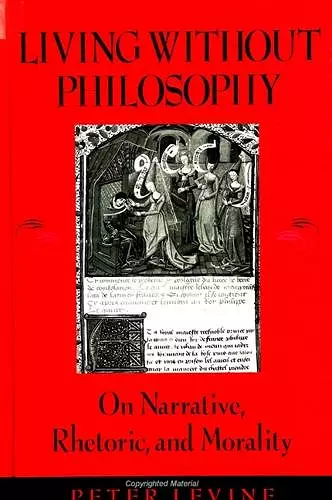Living Without Philosophy
On Narrative, Rhetoric, and Morality
Format:Paperback
Publisher:State University of New York Press
Published:23rd Jul '98
Should be back in stock very soon

Drawing on implications from ethics, theology, law, politics, and education, this book argues that we can decide what is right by describing particular cases in detail, without the aid of ethical theories and principles.
Living Without Philosophy argues that we do not need ethical theories, rules, and principles to decide what is right. Instead, particular cases can be judged by a detailed description of the relevant circumstances. When our judgments differ, we can decide how to act by deliberating under fair conditions. The author provides both a philosophical argument for this position and readings of literary texts in which moral theorists are portrayed as concrete characters. These works include Plato's Protagoras, selections from the Gospels and Dante, Boethius's Consolation of Philosophy, the debate between Erasmus and Luther, Erasmus's Praise of Folly, Shakespeare's King Lear, Nabokov's Lolita, and Martin Luther King's Letter from a Birmingham Jail. Thus, Levine offers essentially a moral argument for the humanities, discussing the implications not only for ethics, but also for theology, law, politics, and education.
"Levine draws the contrast between the 'pragmatist' position and the 'philosophical' position so that the reader understands exactly what separates them. I particularly appreciated his close readings of primary texts. Each was detailed and persuasive. Levine's writing is free of academic jargon and affectation, making it very available to a general audience." — Zev Trachtenberg, University of Oklahoma
"Living Without Philosophy is very well written, clear, and easy to read. It relates previous debates in the history of ideas to contemporary issues in an enlightening and unusual way and its topic is centrally relevant to current debates about the proper nature of moral theory." — Jonathan Dancy, University of Reading
ISBN: 9780791438985
Dimensions: unknown
Weight: 408g
292 pages